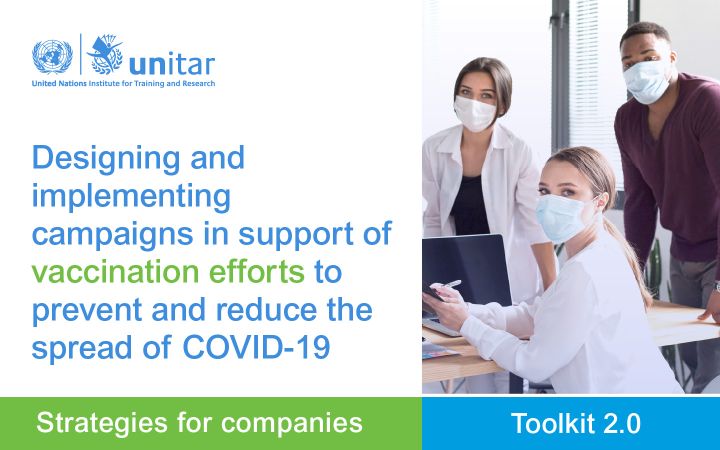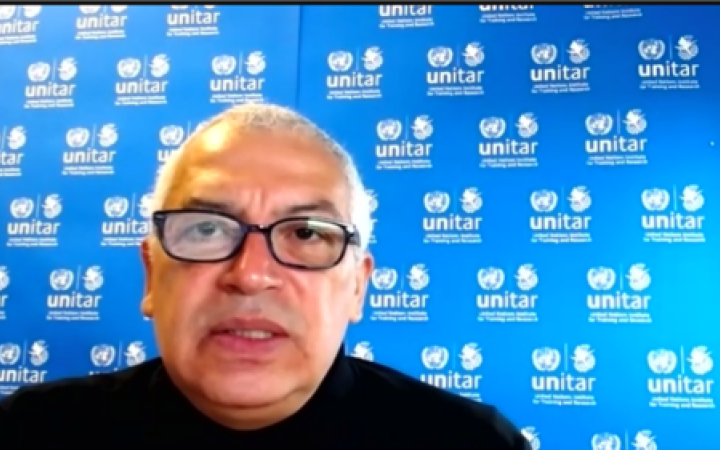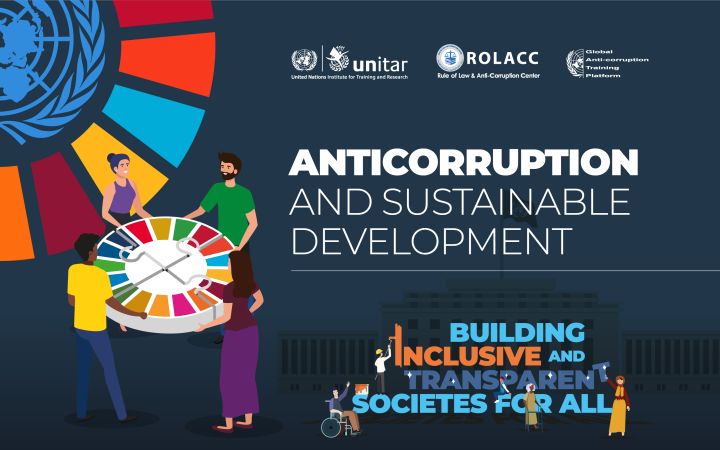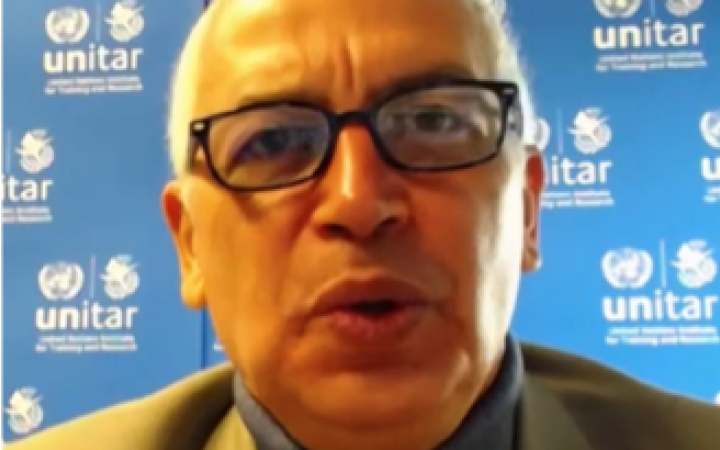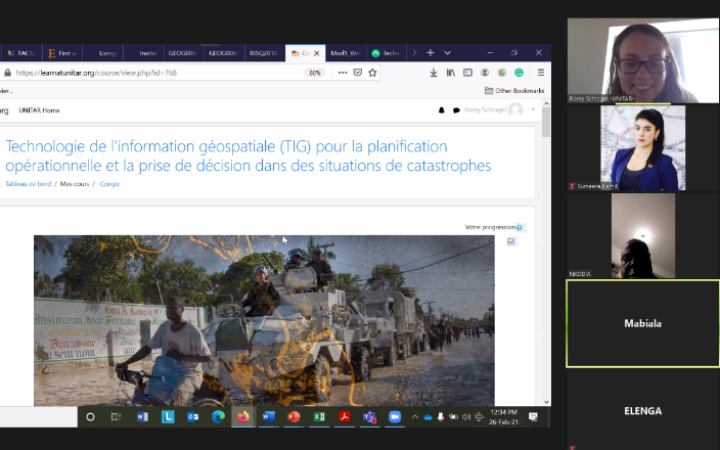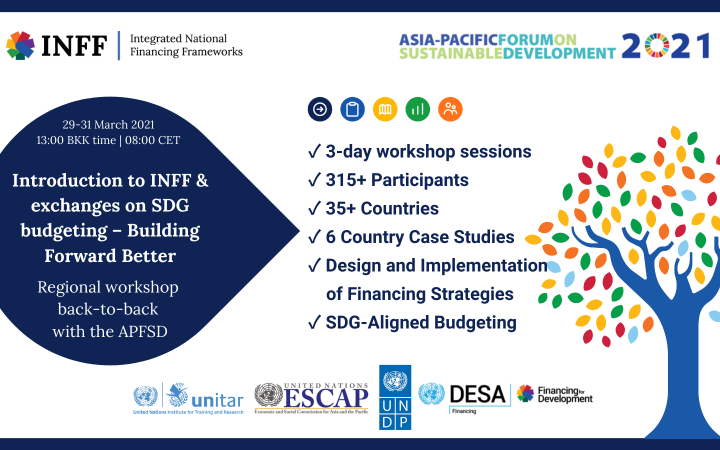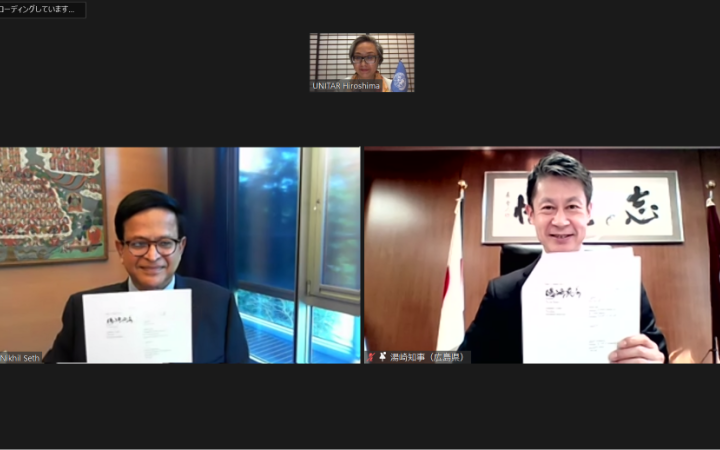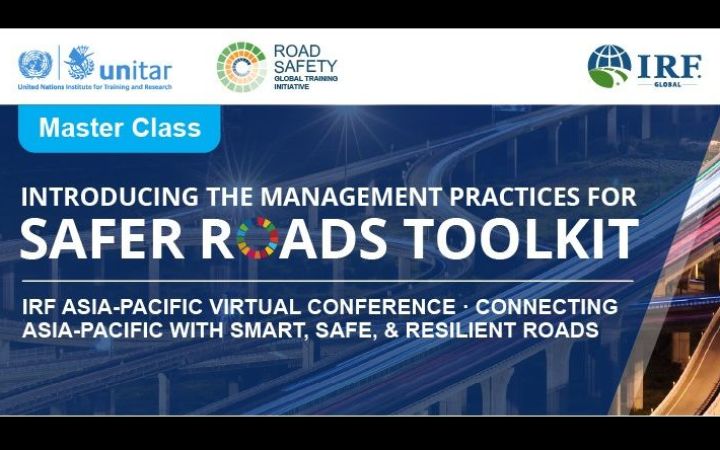Displaying 1191 - 1200 of 1773
19 April 2021, Geneva, Switzerland – 111 senior business executives from AB InBev’s corporate affairs teams across the world joined the inaugural presentation of the Toolkit 2.0 “Designing and implementing campaigns in support of vaccination efforts to prevent and reduce the spread of COVID-19: Strategies for Companies” on 15 April 2021 at 9:00 EST.
16 April 2021, New York, USA (Virtual) - The United Nations Institute for Training and Research (UNITAR), in partnership with the Yale Center for Environmental Law and Policy, successfully delivered the workshop entitled “Values at Work: Sustainable Investing and ESG Reporting” from 7-8 April 2021. The workshop was attended by 40 participants and focused on environmental, social and governance (ESG) metrics and the push for companies and investors to remake business models in order to respond to the goals outlined by the SDGs. This workshop is supported under the programme “Levelling the Playing Field”, with funding allocated from the Swedish International Development Agency’s (SIDA) contribution to the UNITAR Strategic Framework Fund.
13 April 2021, Geneva, Switzerland – In collaboration with the Rule of Law and Anticorruption Center (ROLACC), UNITAR successfully concluded the 2nd iteration of the e-learning course on “Anticorruption and Sustainable Development: Building Inclusive and Transparent Societies for All” offered between 24 February and 7 April 2021.
7-8 April 2021, New York, USA (Virtual) - The United Nations Institute for Training and Research (UNITAR) successfully delivered its skills-building workshop “Elections to UN Organs: Workshop for Election Officers” from 7-8 April 2021. With sponsorship by the Swedish contribution under the programme “Levelling the Playing Field”, the two day-long workshop consisted of five sessions. It included UN staff and elections officers with the aim to help delegates better understand the election processes and procedures of various United Nations organs.
12 avril 2021, Brazzaville, République du Congo – Du 25 février au 31 mars 2021, UNITAR-UNOSAT a livré une formation en ligne au bénéfice de la République du Congo. Cette formation, animée par des facilitateurs, avait pour but de transmettre aux participants les concepts et la terminologie de la technologie de l'information géospatiale (TIG) ainsi que des méthodologies géospatiales pour soutenir les opérations de réponse d'urgence et le processus de décision lors de catastrophes humanitaires.
8 April 2021, Georgetown, Guyana & Geneva, Switzerland – Between 18 January and 02 February 2021 UNOSAT and CIMA in partnership with UNDP, Guyana delivered a 12-day technical course entitled “Operational Flood Forecasting System”. The course focused on the operational use of the hydrologic/hydraulic models and flood forecasting chain implemented at Hydrometeorological Service, Ministry of Agriculture, Guyana. Due to travel restrictions resulting from the COVID-19 pandemic, the training was delivered remotely in a moderated e-learning format.
30 March 2021, Geneva, Switzerland - The BLC and UNITAR presented a joint webinar series, the first of which airing on 22 March 2021, to announce the initiative and ensure that both organizations’ audiences, especially from the Latin American region, may be introduced to further opportunities to advance their skills, networks, and careers.
30 March 2021, Geneva, Switzerland - From 29th to 30th March 2021, UNITAR, ESCAP, UNDP, and UNDESA teamed up for a virtual training on the Integrated National Financing Frameworks (INFF), held over 3 half-days. Titled “Integrated National Financing Frameworks (INFF) and Budgeting for the 2030 Agenda: Financing Sustainable and Inclusive Recovery”, the first day took a deep dive into the INFF building block on integrated financing strategies, including country cases and practical experiences based on DFA findings. The second and the third days focused on the alignment of budgeting processes with nationally determined SDG priorities. 382 participants attended the training sessions, coming from 39 Asia-Pacific and 7 other countries working in national governments, UN and international organizations, think tanks, civil society organizations, private sector, and academia.
26 March, 2021, Hiroshima, Japan – UNITAR is delighted to announce the signing of the 7th Special Purpose Grant Agreement (SPG) with the Hiroshima Prefectural Government for FY 2021 to 2023. Since the establishment of UNITAR Hiroshima Office in 2003, the Hiroshima Prefectural Government has continuously supported our implementation of trainings.
24 March 2021, Geneva, Switzerland – UNITAR Road Safety Global Training Initiative and the International Road Federation (IRF) joined forces to deliver on the 18th of March of 2021 a Master Class on Management Practices for Safer Roads, in the framework of the International Road Federation regional conference on Connecting Asia-Pacific with Smart, Safe and Resilient Roads.


